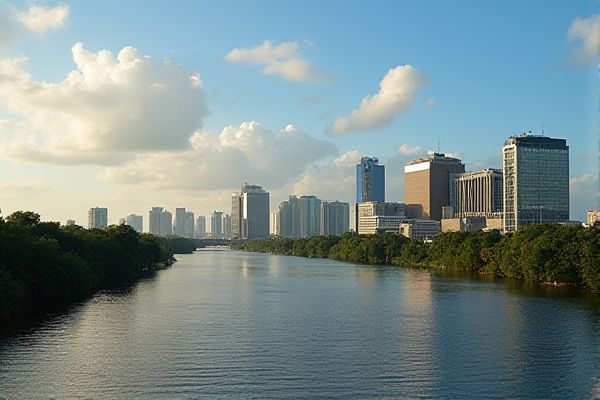
Healthcare facilities in Louisiana: Medicaid expansion eligibility. Access to primary care physicians. Major hospitals in New Orleans. Specialty healthcare services. Telemedicine availability. Mental health resources. Federally Qualified Health Centers (FQHCs). Rural health clinics. Louisiana's health insurance marketplace. Emergency medical services.
Medicaid expansion eligibility.
In Louisiana, Medicaid expansion eligibility is available for individuals aged 19 to 64 who meet citizenship requirements, do not already qualify for Medicaid or Medicare, and have an income below specified thresholds, such as an annual income of $17,616 for an individual. The federal government covers 90% of the costs for Medicaid expansion enrollees, providing comprehensive health benefits including doctor visits, medicines, therapy, and more. To learn more about the specific benefits and eligibility, visit the Medicaid Expansion page on the My Healthy Blue Louisiana website.
Access to primary care physicians.
In Louisiana, the majority of residents live in Health Professional Shortage Areas (HPSA) with limited access to primary care, dental, and mental health services. The Well-Ahead Louisiana Primary Care Office works to build community health systems, support healthcare organizations, and recruit and retain healthcare providers to address these shortages and reduce health disparities. By focusing on these crucial areas, the Well-Ahead Louisiana Primary Care Office makes significant strides in improving healthcare access for underserved communities, ensuring that residents receive the necessary care to lead healthier lives.
Major hospitals in New Orleans.
In New Orleans, major hospitals include Ochsner Medical Center - New Orleans, ranked as the Best Hospital in Louisiana for consecutive years, and home to top-ranked specialties and procedures. Other notable hospitals include University Medical Center, a Level 1 Trauma Center, Tulane University Hospital, and Children's Hospital, all providing a range of specialized and general healthcare services.
Specialty healthcare services.
Children's Special Health Services (CSHS) in Louisiana provides specialty medical care services for children and youth with special health care needs, including chronic physical, developmental, behavioral, or emotional conditions, through direct service clinics and community outreach. Similarly, the Franciscan Missionaries of Our Lady Health System offers comprehensive specialty healthcare services across Louisiana, showcasing advanced technology and innovative research. Their services cover a wide range of health needs for all ages through their hospitals, surgery centers, and clinics. For more information about these extensive services, visit Children's Special Health Services.
Telemedicine availability.
Telemedicine is widely available in Louisiana, offering healthcare facilities the ability to provide efficient, convenient, and high-quality care through secure, HIPAA-compliant video teleconferencing. This includes services such as telepsychiatry, emergency telepsychiatry, and consultations for infectious diseases, expanding Access to Care, especially in rural areas, and helping to manage resource shortages and reduce wait times.
Mental health resources.
Louisiana provides extensive mental health resources through the Louisiana Crisis Response System, which includes essential services such as mobile crisis response, community brief crisis support, behavioral health crisis care, and crisis stabilization. These critical services are designed for Medicaid recipients aged 21 and older, ensuring swift and professional support in times of need. To access these resources, individuals can rely on a 24/7 crisis hotline, making help readily available at any moment. For detailed information about these services, visit the Louisiana Health Connect website.
Federally Qualified Health Centers (FQHCs).
Federally Qualified Health Centers (FQHCs) in Louisiana provide comprehensive primary outpatient services, including mental health, dental, and substance abuse treatment, to underserved areas and populations, regardless of insurance or financial status. These centers, supported by federal funding, operate over 470 facilities, serving over 489,000 patients annually, and offer services on a sliding fee scale based on the patient's ability to pay. To learn more about these vital services, you can visit the Health Centers page for detailed information.
Rural health clinics.
Rural Health Clinics in Louisiana serve as essential primary care facilities strategically located in non-urbanized areas that experience significant healthcare shortages. These clinics provide comprehensive services through a collaborative team of healthcare professionals, including physicians and non-physician providers like Nurse Practitioners (NPs), Physician Assistants (PAs), and Certified Nurse Midwives (CNMs). To achieve certification, these facilities must adhere to specific eligibility criteria, which include their placement in medically underserved areas, the employment of mid-level practitioners, and the provision of crucial services such as primary care, emergency care, and laboratory services. For more detailed information, you can explore the State Office of Rural Health.
Louisiana's health insurance marketplace.
In Louisiana, the health insurance marketplace, managed through HealthCare.gov, offers various health insurance plans, including those from four private insurance companies. These options cater to individuals and families and include Medicaid, CHIP, and Marketplace plans, often with financial assistance such as Advance Premium Tax Credits and cost-sharing reductions.
Emergency medical services.
In Louisiana, the Emergency Medical Services (EMS) program, established under Title 40 of the Louisiana Revised Statutes, is coordinated by the Louisiana Department of Health & Human Resources. The program aims to provide immediate medical care through a comprehensive system that includes pre-hospital care, transportation, and hospital communication, with seven regional EMS systems designed to ensure timely and appropriate medical care for emergency patients across the state. For more detailed information on regulations governing EMS in Louisiana, visit the Louisiana Administrative Code Title 48.
